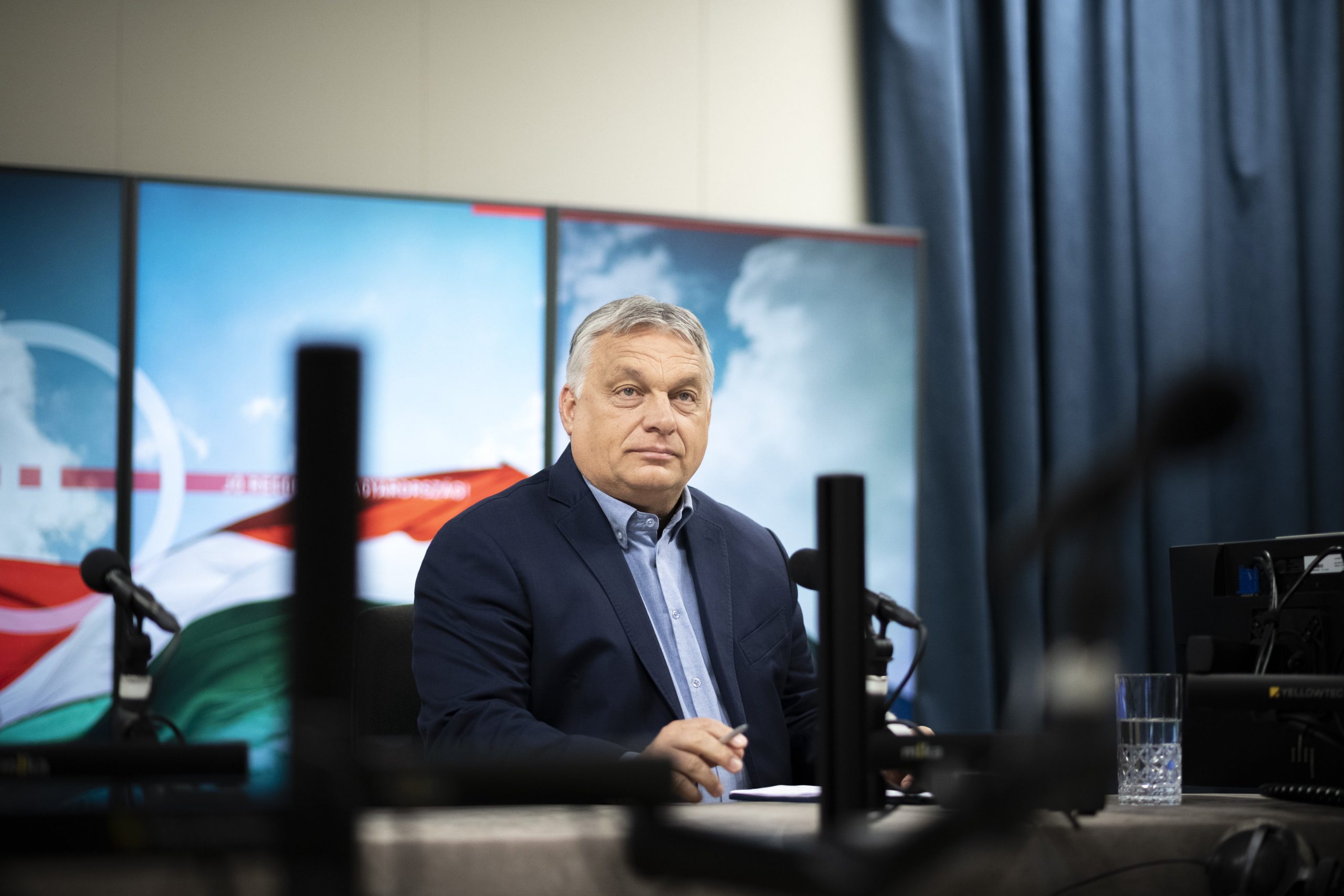
According to the Prime Minister, big food chains and multinationals are raising prices even in circumstances where there is no basis for doing so.Continue reading

As usual, Viktor Orbán was the guest of Kossuth Radio’s program on Friday morning. The Prime Minister spoke about the economic situation, inflation, energy supply and the World Athletics Championships, among other topics.
While 2023 was the year of dismantling inflation, 2024 will be the year of restarting economic growth, Viktor Orbán said. He also touched upon the need for a work-based economy, in which everyone who wants to can work, adding that today 4 million 800 thousand people are working, one million more than in 2010, when the Fidesz government came to power.
The Prime Minister pointed out that
August would be the month when real wages could change, as wage increases could reach or exceed inflation, which is expected to be around 16 percent.
We are working relentlessly, dragging inflation down and wages up, so that after August, wages can catch up with the pace of price increases, he said. “We’re going to have a tough autumn,” he noted, adding that hopefully by December the two will be close together.
Viktor Orbán said that part of the recent price rises could be explained by a significant increase in energy prices or by the sanctions imposed by the European Union. He added, however, that there was a part of the price increases in recent months that he did not see as justified, especially for international supermarket chains and multinationals. They have kept price levels much higher than what would have been acceptable from a fair profit point of view, he said, adding that this is why he called them price speculators. He warned that this must be guarded against.
According to the Prime Minister, Brussels is shocked by the reduction in Hungarian utility bills, saying that Hungarian families should pay more. In his view, the European Union is “annoyed” by our system because, compared with other member states, Hungary pays the lowest electricity and gas prices. Meanwhile, in many other EU countries, politicians make their citizens pay more for energy, he added, pointing out that people are asking their politicians that if citizens in Hungary can get a cut in utility bills, why can not they get it as well, in their own country.
Viktor Orbán stressed that in order to have a meaningful discussion on energy prices and overheads, we first need energy. If there is no energy, the country and the economy will stop, underlining that security of supply comes before all other considerations.
He noted that gas had been coming through the Nord Stream pipeline, but it had been blown up, preventing large quantities of energy from Russia reaching Europe. Since we are still importing gas, we had to find another route, which comes from the south, through the TurkStream, he said. This explains the huge number of diplomatic guests in Hungary in the recent days, when the presidents of Turkmenistan, Azerbaijan and Turkey, as well as the Emir of Qatar, visited our country, among others.
All the gas that we can import from the South comes through Turkey, the Prime Minister pointed out, adding that it is therefore essential to reach an agreement with the Turks, to be on good terms, to give them respect and to cooperate with them in other areas.
Energy for Turkey comes partly from Azerbaijan, whose President was also here in our country, and Hungary also buys gas from them, he added.
The Prime Minister recalled that Turkmenistan has one of the world’s largest gas reserves, and they want to import gas to Europe, which “will come in handy for us” because we need it. He also spoke about a major program under way to produce huge quantities of electricity in Azerbaijan and then transport it to Hungary via submarine pipelines involving Georgia and Romania.
He also mentioned negotiations with Qatar to allow European countries to buy gas via sea routes. He recalled that he had discussed this with the Emir at the World Cup.
Now the Qatari Emir had returned the visit and they had agreed on how gas would be transported from Qatar to Hungary via Croatia.
Viktor Orbán stressed that Central Asia will play a key role in the next decade. After more than a decade of building friendly relations, based on common origins and a shared past, and therefore well-established cultural ties, the relations are now paying off, he pointed out. He stressed that “we are several years, even a decade, ahead of others” and that this speed and strength of the relationship is bringing major economic benefits.
The Prime Minister emphasized that the World Athletics Championships venue, the National Athletics Center, is a fantastic and welcoming facility. Both the spectators and the competitors find themselves in a world of “fairness”, of gentlemanly generosity, where “we are happy for each other’s success, and of course for our own”, he highlighted.
He noted that
this World Championship proves that sport can make a very beneficial contribution to the quality of life, not only on the health side but also on the spiritual side, because it builds community and creates shared experiences.
Viktor Orbán emphasized that the event and the stadium are among the best in the world. He underlined that the athletes would bring Hungary’s good name to the world, and that they themselves speak in superlatives about Budapest and the Hungarians. Now foreigners say that “we are good hosts, this is a decent country where everyone is welcome, a friendly country, and allow me to say that it is a country where the Christian roots of love still exist”, he summed up.
Via MTI, Featured photo via MTI/Miniszterelnöki Sajtóiroda/Benko Vivien Cher